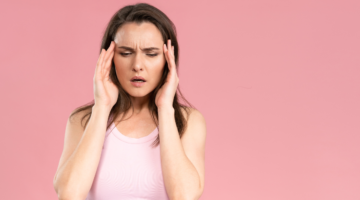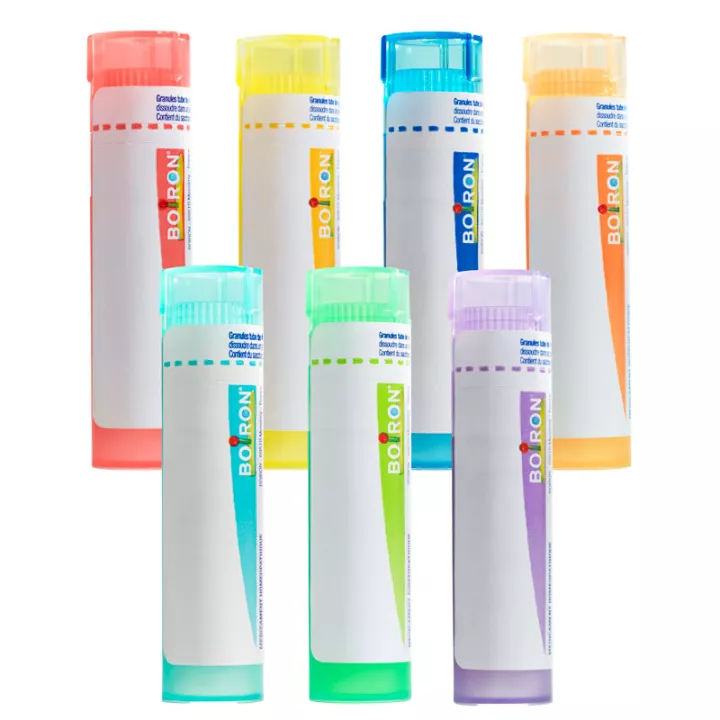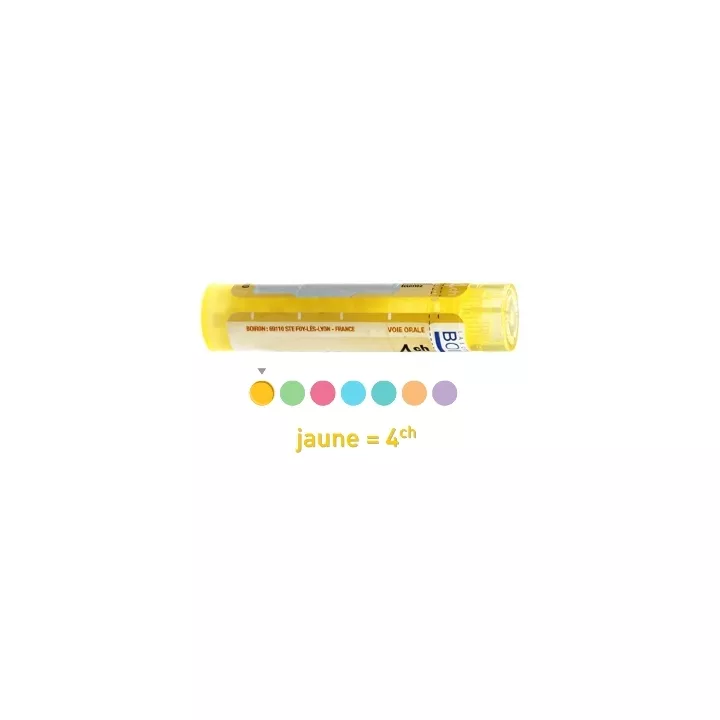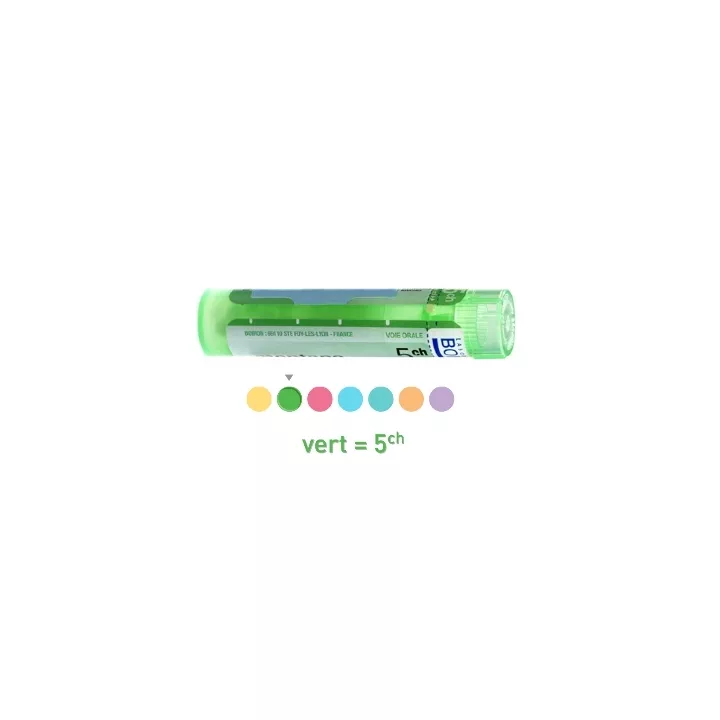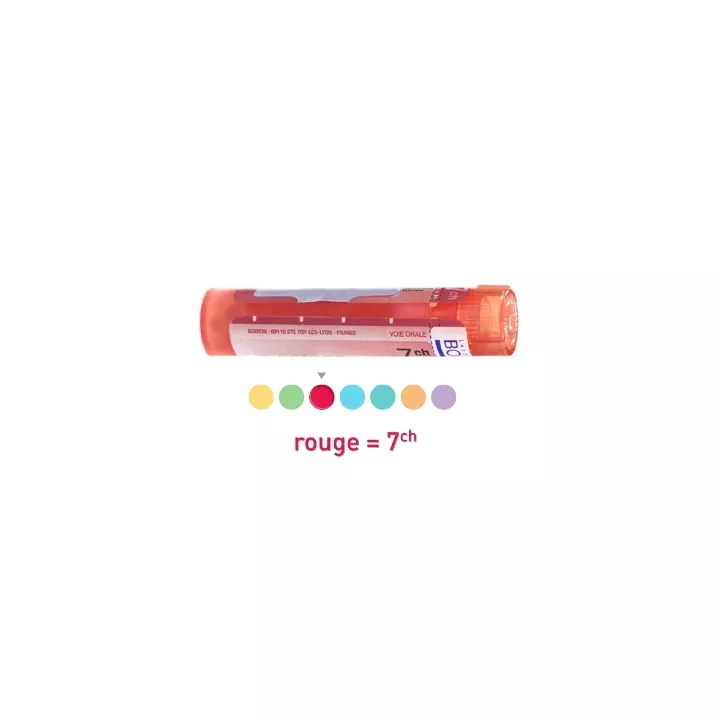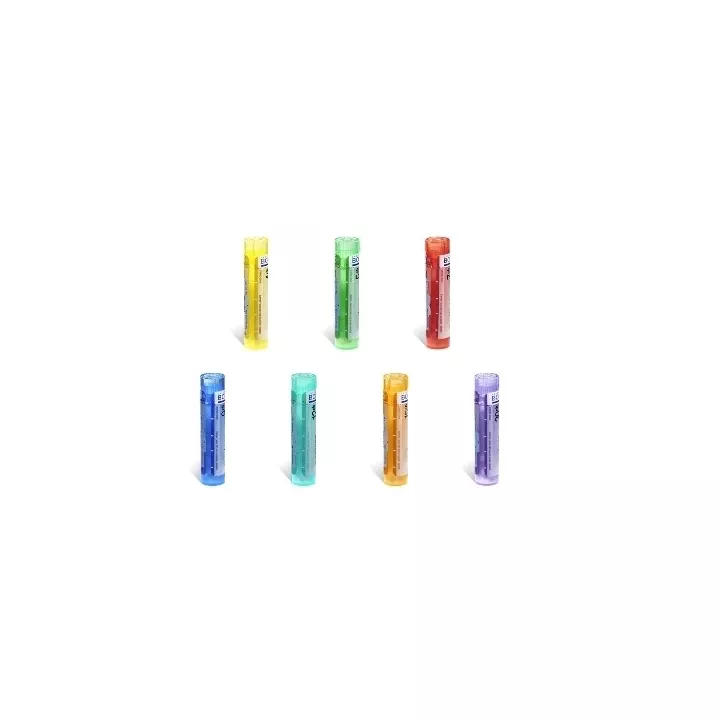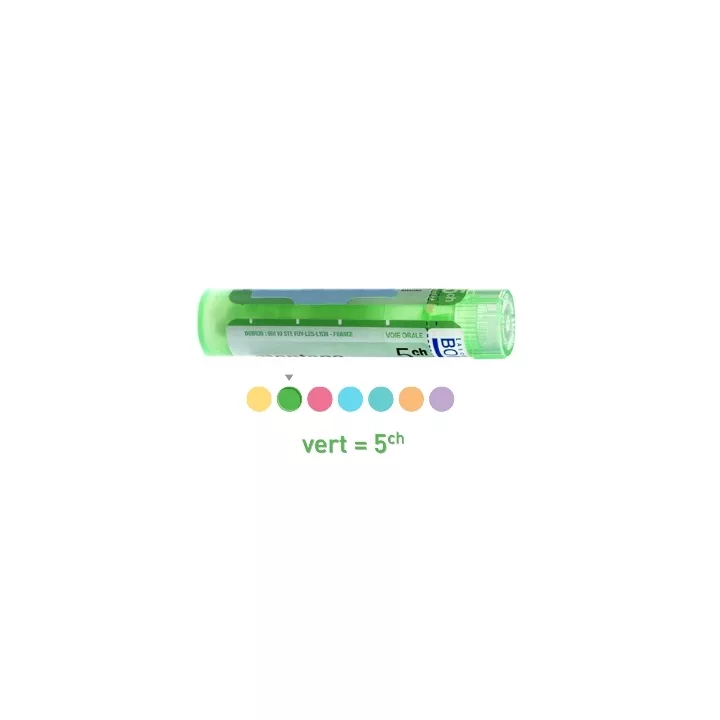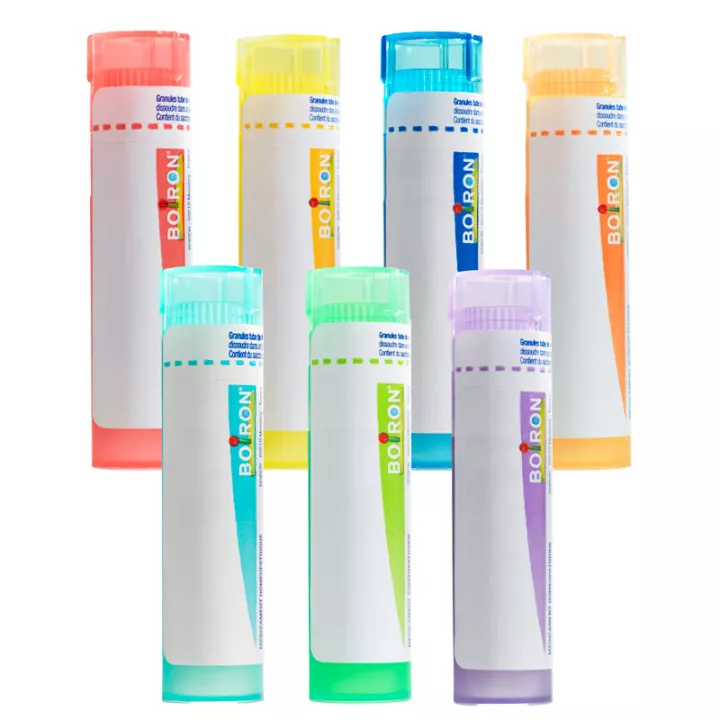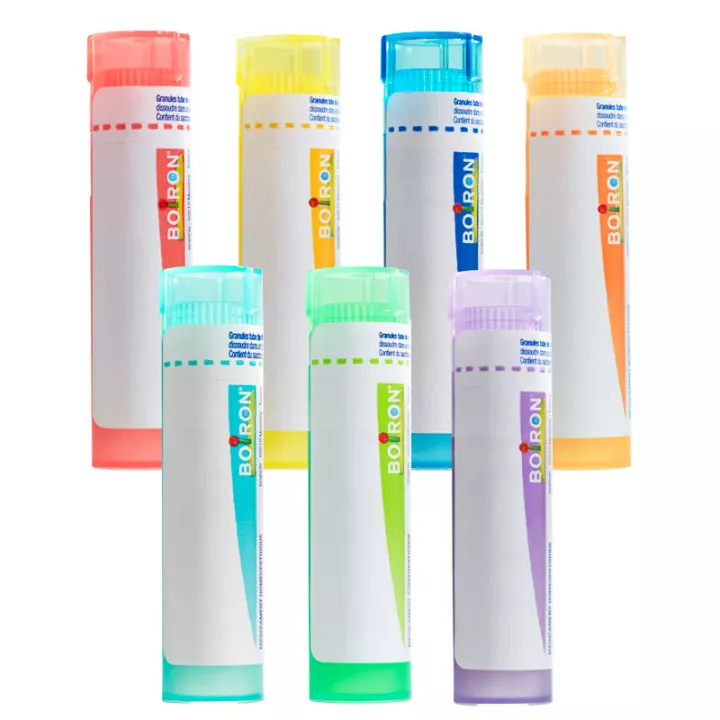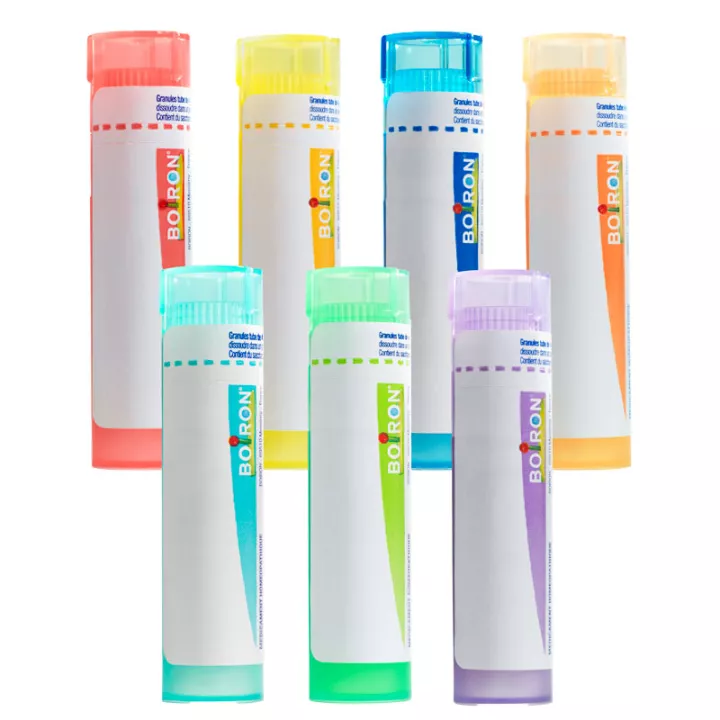Paris Quadrifolia : A Homeopathic Remedy for Pain and Neuralgia
Paris Quadrifolia 4CH, 5CH, 7CH, 9CH, 15CH Boiron homeopathic granules
Authorized Medicine: Aut.0678
Origin : Vegetal
Available from 2 CH to 30 CH
Therapeutic applications
Paris Quadrifolia is frequently recommended for :
- Cervical pain and headaches: To relieve pain in the nape of the neck, which can radiate upwards and cause headaches.
- Neuralgia: Treatment of nerve pain, particularly that which follows a linear path or is associated with a sensation of tightness or compression.
- Weight Sensations: Ideal for cases where pain is accompanied by a sensation of weight, aggravated by movement and improved by rest.
- Localized Pain Syndromes: Effective against localized pain that can benefit from targeted treatment, particularly in the context of musculoskeletal disorders.
Therapeutic indications in homeopathy
Homeopathic medicines can be used for a variety of symptoms, so it is not possible to determine the indications and dose of a specific preparation. The homeopathic physician selects the appropriate medicine, dilution and dosage according to the patient's state of health and characteristic symptoms.
PARIS QUADRIFOLIA 9CH: Relief of Neuralgic Pain and Ophthalmologic Problems
Your Homeopathic Solution for a Better Quality of Life
PARIS QUADRIFOLIA 9CH Tube Granules is a homeopathic medicine that offers an effective response to the ophthalmological problems and neuralgic pain that can interfere with your daily life. Whether you suffer from asthenopia, zonas, facial neuralgia, migraines or headaches, PARIS QUADRIFOLIA 9CH is there to bring you welcome relief.
Effectiveness of Paris Quadrifolia in Pain Management
Paris Quadrifolia is mainly prescribed to relieve acute or chronic pain. This remedy is particularly effective in treating :
- Neuralgic-type pain: Ideal for pain radiating from the nape of the neck to the vertex, this remedy is often recommended when neck pain extends to the top of the skull. It is also useful for cranial pain associated with a sensation that the eyes are being pulled back, typical of excessive eye strain.
- Headaches and migraines: For headaches accompanied by visual disturbances and eye pain, Paris Quadrifolia offers significant relief by reducing the intensity and frequency of migraine episodes.
Why choose PARIS QUADRIFOLIA 9CH for your neuralgic pain?
- Improved ophthalmology: If you experience asthenopia, PARIS QUADRIFOLIA 9CH can help improve visual comfort and reduce eye strain.
- Relief of Neuralgia: Neuralgic pain such as zonas, facial neuralgia, migraines and headaches can be extremely debilitating. PARIS QUADRIFOLIA 9CH works to relieve these pains and enable you to resume your daily activities.
- Natural approach: With PARIS QUADRIFOLIA 9CH, you benefit from a homeopathic treatment option, avoiding the undesirable side effects associated with some conventional medicines.
Ophthalmological applications of Paris Quadrifolia
In ophthalmology, Paris Quadrifolia offers an effective treatment for asthenopia, also known as eyestrain. This indication is particularly relevant for people who place intense demands on their eyes, such as long periods spent in front of a screen, thus contributing to better eye health.
Asthenopia is a pathology that affects the eyes when they are subjected to prolonged strain. Increasingly common, this condition is accompanied by a feeling of eyestrain after long hours of work or prolonged video-game sessions. Asthenopia is more likely to appear at the end of the day, although in some cases it can start as soon as you wake up. Remedies such as Jaborandi, Paris quadrifolia, Ruta graveolens or Arnica montana can help relieve and alleviate the most troublesome symptoms of eye strain.
Subjects suffering from asthenopia have difficulty sustaining long efforts with their eyes, particularly when observing or examining an object. Symptoms usually include irritated eyes, burning, itching and heaviness, as well as dry or watery eyes. Eyestrain is most often felt at the end of the day, but in some cases it can start as soon as you wake up. The most significant symptoms are pain in the eyes, eyebrows, forehead and temple, followed by photophobia, which prevents the sufferer from tolerating light.
In some cases, vision is blurred, and the object being observed may even split into two. Finally, photophobia can sometimes cause dizziness or nausea.
Directions for use and dosage
To relieve asthenopia following prolonged exposure to the computer, we recommend taking 5 granules of Jaborandi 5 CH per day for one month, especially if symptoms are accompanied by visual fog and difficulty concentrating. If the sufferer suffers from chronic migraines, 5 CH Paris quadrifolia granules per day are recommended. To alleviate eye pain, take 5 granules of Ruta graveolens 5 CH three times a day. When the eye becomes red, take 5 granules ofArnica montana 5 CH 3 times a day.
Do not touch the homeopathic granules with your fingers.
Use a mint-free toothpaste (such as Homéodent Boiron, which is compatible with homeopathic granules).
Recommended dosages for maximum effectiveness
The administration of Paris Quadrifolia must be precisely adapted to the specific symptoms of each individual:
- For general pain and headaches: The standard dosage is to take five Paris Quadrifolia 5 CH granules three times a day - at breakfast, lunch and dinner. This routine helps maintain a constant level of remedy in the system, providing ongoing symptom control.
- For migraine attacks: At the first signs of migraine, we recommend taking five Paris Quadrifolia 5 CH granules, repeated every hour until the pain subsides. This method effectively manages acute symptoms.
- Specific treatment of zonas and facial neuralgia: These conditions require a personalized prescription determined by a homeopath or doctor, underlining the importance of consulting a professional for these particular pathologies.
Paris Quadrifolia can becombined with other homeopathic treatments to optimize therapeutic results. Complementary remedies include :
These combinations make it possible to target complex symptoms or multiple pathologies more precisely, offering an integrated, personalized treatment strategy.
Packaging and contents
Paris Quadrifolia, often called Parisette à quatre feuilles, is a plant used in homeopathy for its beneficial effects on pain and neuralgia, particularly those affecting the neck and back. This plant-based medicine is registered under number EH01880 and is available in tubes and for magistral preparations.
Origin and properties
Paris Quadrifolia is a plant that grows in shady, humid areas of Europe and Asia. In homeopathy, it is valued for its ability to treat pain that is described as radiating or heavy, and is often used for neck pain and related headaches.
Available formulations
Tubes: Paris Quadrifolia is available as homeopathic granules in dilutions from 4 CH to 15 CH, enabling targeted application according to the patient's specific symptoms and sensitivity.
Homeopathic preparations: This remedy can also be prepared in Hahnemannian dilutions starting at 4 CH. This offers flexibility in tailoring treatment to individual patient needs, especially for those who may require a particular concentration of the remedy.
Precautions for use
Homeopathy and pregnancy
Homeopathic medicines have no chemical toxicity, no contraindications, no interaction with other drugs, and no adverse effects linked to the quantity of product ingested. Pregnant women can use homeopathic remedies without any known risk to themselves or their unborn child, but it is advisable to seek advice.
Frequency of homeopathic use
For acute conditions, homeopathic remedies should be taken every hour until symptoms improve. From then on, they should be taken 3 or 4 times a day, spaced out, and then gradually stopped.
For chronic conditions, low-dilution remedies (> 9CH) should be taken 1 or 2 times a day, while basic remedies should be taken once a week, or even once a month. This decision is left to the homeopath.
What to do if there is no improvement within 24 hours
Certain pathologies cannot be treated with homeopathy simply by self-medication. Their seriousness requires medical advice, which can be given by a homeopathic doctor. This doctor will judge whether your condition can be treated with homeopathy alone, or whether your treatment needs to be supplemented with allopathic medicine.
